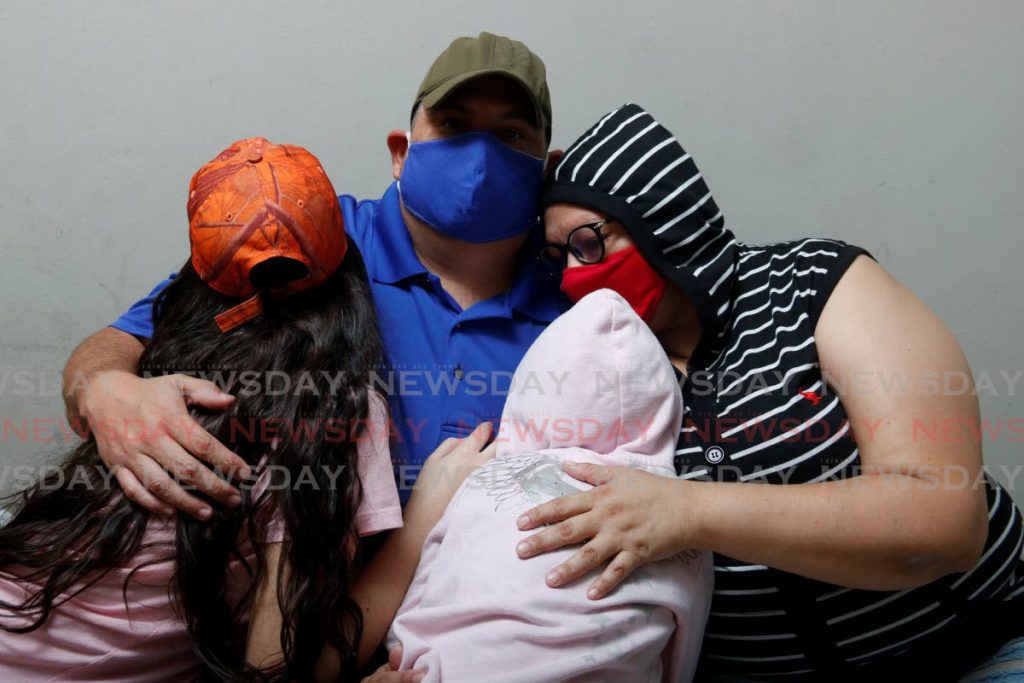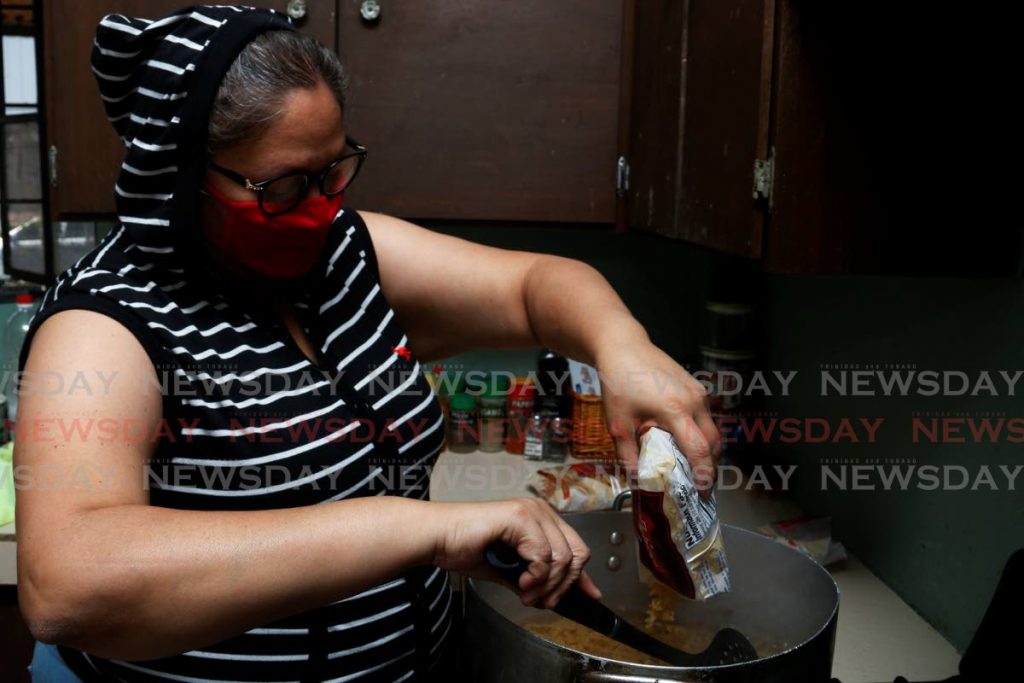Venezuelan politician flees to TT with family

RIA CHAITRAM AND GREVIC ALVARADO
A Venezuelan politician, who once held a prestigious position, has found himself in a precarious position, trying to provide a livelihood for his family living illegally in this country.
Dennys Hernández Lares came in through an illegal entry point in south Trinidad with his wife and daughters in January. Since then, they have been living with other immigrants, who also entered illegally, in San Fernando, all seeking social and economic stability.
Hernández Lares explained to Sunday Newsday about the hardships in his country which forced his family and thousands of others to flee to the Caribbean and other South American countries seeking a better life.
He believes that legal doors can be opened so Venezuelans can enter and exit without problems.
“Many parents have come first, but since they cannot leave and re-enter this country, they are forced to bring the other members of their family along.
“That would change if the head of the house was allowed to go to Venezuela to visit and return.”
Hernández Lares said he was willing to explore with the local authorities the best ways to provide work permits for Venezuelans.
“We would only be here working, there are many options that the TT government can evaluate. Registration yes, but what about short-term work permits, proper monitoring?
He said the lengthy process to renew his passport in Venezuela forced him to make quick decisions, one of which was to come to this country because of its proximity to the state of Anzoátegui, his area of residence.
“The political situation in Venezuela is very difficult, especially for those of us who oppose the Nicolás Maduro's regime. The pressures, threats, and the closure of economic possibilities lead us to rethink our struggle and abandon it to go to another nation, that is why I decided to leave my country. My family comes first,” Hernández Lares said.
Hernández Lares was the local director of the Social Christian political party (COPEI) and also practised law and worked as an insurance agent. On Sunday, the National Assembly elections takes place which Maduro is expected to win, as the opposition is expected to boycott the polls.
“Venezuelan officials are trying to push a communist agenda, something its nationals have opposed.”
Hernández Lares acknowledged that leaving Venezuela in the manner he did was illegal, but it was a charge he had to face.
“As a lawyer, I fully understand the laws and respect them, but there is also a human point that must be analysed and taken into account," he said. "It is a human rights issue, not a crime issue.”
Hugging his five-year-old daughter, while his wife and 14-year-old daughter supported him, Hernández Lares said he felt more depressed about his status in this country.
“Without a registration card, we have to go out to the streets in hiding, we are unable go to a supermarket as a family, or to a shopping centre.
“I also do not have a stable job and the little that we get is just enough to get by. When I have work it's sometimes three days a week and I am happy. This allows me not only to live here, but also to help my relatives a little in Venezuela. We live with another family of four and two individuals to cut down our expenses."
Since he arrived in TT, Hernández Lares has had to work hard and under the shadow and fear of being caught by police and immigration authorities. He hustled in areas of construction, painting, landscaping, and cleaning. These jobs, he explained, did not happen without humiliation and exploitation from locals.
He said, “My friends and family in Venezuela call me and ask me how I am here, how I feel; I tell them that I am not in good spirits or physically.
“Although we have no access to medical care except for cases of emergency, no form of schooling or my children and we are confined to our home, we were better off than in Venezuela. Imagine having to live on US$1 a month and a kilo of beef cost about US$3. How is this even possible?
"Imagine having to live like this in Venezuela under the covid19 circumstances. It is already a difficult task here.”
When Sunday Newsday visited his home, Hernández Lares’ wife, who asked to remain unidentified, was preparing lunch for all the occupants in the home. A simple pasta dish fed them all for the rest of the day. Their home had little to no furniture except for an old patio set and make-shift couch, a refrigerator, a stove and the kitchen sink was surrounded by cupboards that were falling apart. The house and yard were kept clean and tidy.

Having been the owner of two houses and several vehicles in Venezuela, Hernández Lares said he sold most of his assets to survive. The situation which he predicted had no resolution in the near future, will affect his children's chances of having equal opportunities.
He said, “We do not speak English, and there is no opportunity for them (his daughters) to go school here because of our illegal status. Without a proper education their chances for a comfortable life have been taken away from them. It is a patriarchal society and I fear for their future.”
Hernández Lares believed that most Venezuelans were in TT only for a certain time, so that they could be in better condition and provide for their families at home.
“We understand that Trinidad is a small country and that it has its own laws, but we have also verified that there are many opportunities for everyone, both local and foreign.
“Immigrants can contribute a lot to the development of this country, I believe that everything is a matter of an understanding and a change in the way people see us,” he said.
With the recent rulings in the court ordering the deportation of migrants, he said there were ways for citizens of both countries to have a cordial working relationship, that did not infringe on basic human rights.
The Prime Minister has highlighted TT’s current economic challenges in light of the covid19 pandemic and also warned about haphazardly bending the migration issue to it suit specific agendas.
Last year government registered 16,523 Venezuelan migrants which Dr Keith Rowley noted was a humanitarian act, but one which cannot be abused.
In addressing issue in May 2019 he said, “There comes a time when the volume and the presence of these economic migrants in TT will threaten the quality of life of the people of TT and it falls to us to protect ourselves from that.”
A few days ago, Rowley also noted that government had no intention to reopen the registration process for Venezuelans and will also deal a stern hand to illegal immigrants.
“We have not taken a decision to register more Venezuelans. What we have also done – and the policy still stands at the time of registration if you were not among those who were registered who were here, who have come in over a period of time – if you were not among them and you turn up in TT, we will exercise our right to deport you.”


Comments
"Venezuelan politician flees to TT with family"